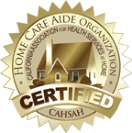Periods of extremely hot weather–heat waves–can cause serious health problems for everyone, but the most vulnerable people are older people, especially over 75 years, babies and young children, people with serious chronic conditions, people with mobility problems, people with serious mental health problems, people on certain medications, people who misuse alcohol or drugs, and people who are physically active.
The most common heat-related conditions are heat exhaustion and heatstroke; they are also the most serious. Heat exhaustion means your body is overheating. It is the result of prolonged perspiration and loss of large quantities of salt and water. It occurs most often in hot, humid weather, when adequate fluids are not replaced (common in older adults who have a diminished thirst mechanism despite dehydration). This can occur either indoors or outdoors, with or without exercise. Symptoms of heat exhaustion may include nausea, cold and clammy skin, heavy sweating, weakness, dizziness, headache, shallow breathing, abdominal cramps, and muscle tremors. Mental disorientation and brief loss of consciousness may also occur. If you are concerned that you may be experiencing the symptoms, lie down with your feet 8 to 12 inches higher than your head, and sponge off with a cool, wet cloth. If possible, move to an air-conditioned environment; if you are outside, move to a shady spot. Loosen your clothing to allow the circulation of air to cool your body. If you are completely conscious and alert, drink one-half glass of water every 15 minutes for 1 hour. If you are drowsy or vomiting, fluids should not be given by the mouth. If symptoms worsen or last longer than one hour, seek medical help. If left untreated, heat exhaustion may progress to heatstroke.
Heatstroke occurs when the body becomes unable to control its temperature: the body’s temperature rises rapidly, the sweating mechanism fails and the body is unable to cool down. Body temperature may rise to 106º F or higher within 10 to 15 minutes. The most common cause of heatstroke is vigorous physical activity in a hot, humid environment. Heatstroke can also result from overexposure to direct sunlight, with or without physical activity, or to very high indoor temperatures. It can cause death or permanent disability if emergency treatment is not given. Symptoms include an extremely high body temperature; red, hot and dry skin; no visible perspiration; fast, strong pulse that may slow and weaken as the blood pressure drops; throbbing headache; dry mouth; vertigo; nausea; confusion; and unconsciousness. If you are concerned that someone has symptoms of heatstroke, find a cool place; if outside, find a spot in the shade. The victim should be undressed (retaining undergarments only) and his bare skin should be cooled with cold water or ice compresses. Place cold packs around the neck, under the arms, and around the ankles to cool the blood in the main arteries. Use a fan or air conditioner if available. Continue the treatment until the temperature falls below 100ºF and check it every 10 or 15 minutes to ensure that it does not rise again. Obtain medical assistance.
Keep cool by following these tips: make sure you drink plenty of water; don’t drink alcohol or caffeine; wear cool, light-colored clothes even if you don’t feel hot; cover sunny windows with drapes or awnings; and use air conditioning, if possible. Drink water, fruit juices or other fruit drinks at regular intervals during the day, even if you do not feel thirsty. Use common sense: avoid hot foods and heavy meals—they add heat to your body. Limit outdoor activities; try to plan activities for the coolest times of the day–before 10:00 and after 6:00 PM. When spending time outdoors, wear a hat and use a sunscreen with a sun protection factor (SPF) greater than 15 to protect yourself against sunburn. Never leave anybody in a parked car, not even for just a few minutes. The temperature inside a car rises rapidly during hot weather and can lead to serious injury or even death. During extreme heat conditions, listen out for health and safety updates on the radio or TV. Some medications may keep you from adjusting well to heat. Ask your health care provider for special tips if you’re taking medicines that can put you in danger of heatstroke because they affect the way your body reacts to heat.
Depending on your age, you may not be as vulnerable to heat injury as some people are; this doesn’t mean that you can ignore the symptoms and precautions mentioned here. An ounce of prevention is worth a pound of cure!







